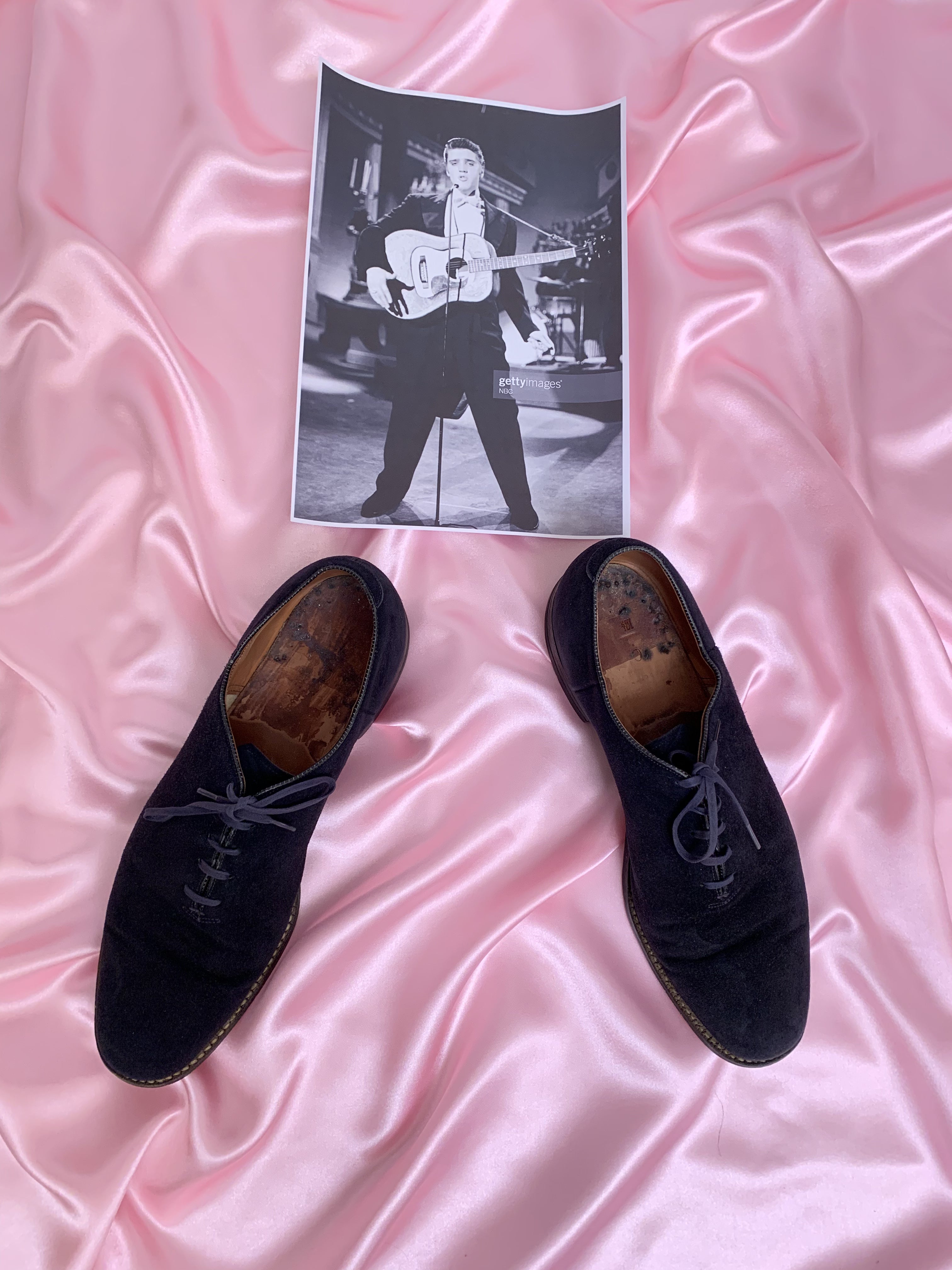One for the money: Elvis Presley’s blue suede shoes go for six figures at auction

Elvis Presley’s iconic blue suede shoes sold for more than $150,000 at an auction on Friday.
Presley wore the famed dark blue shoes for several performances throughout the 1950s, even mentioning them during a 1956 appearance on Steve Allen’s then-famous variety show. Now, they’re in the hands of a California-based collector who paid a six-figure price at a Henry Aldridge and Son auction.
The high price “reflects the importance of such an iconic object,” Auctioneer Andrew Aldridge told CBS News.
“When you think of Elvis, you probably think of upturned collars, Las Vegas and blue suede shoes,” Aldridge said.
While Presley did not write the iconic “Blue Suede Shoes” tune, the song — and shoes — became synonymous with him after he covered it on his debut album.

Presley originally gave the shoes to his close friend, Alan Fortas, the night before he left for the army in 1958. Presley and his friends spent the evening partying at his Graceland mansion. Fortas, who also managed Presley’s ranch, died in 1992.
“That night, Elvis gave me these blue suede shoes size 10 1/2,” Fortas wrote in a letter, according to the auction company. “I’ve owned these all these years”
The shoes have since appeared in several museums, including Las Vegas’ Elvis-A-Rama. That museum was robbed in 2004, but the shoes were miraculously left untouched.

The shoes were authenticated by Jimmy Velvet, Presley’s close friend and the “world’s leading Elvis authority,” the auction website reads.
“There is a lot of history wrapped up in these well-worn blue suede shoes which are synonymous with the name Elvis Presley,” Velvet said, according to the auction website.
Presley’s family recently made headlines over a Graceland mansion controversy.

In May, a mysterious company tried to sell Presley’s estate in a foreclosure auction. They claimed his estate had failed to properly repay a loan that used the Tennessee mansion as collateral.
But actor Riley Keough, his granddaughter, said the claim was “fraudulent” and filed a lawsuit to halt it. A judge then blocked the sale.
The next week, a self-described scammer with ties to Nigeria wrote to The New York Times claiming they were responsible for the failed auction attempt.
Tennessee police turned over the investigation to federal authorities earlier this week, the Associated Press reports.





